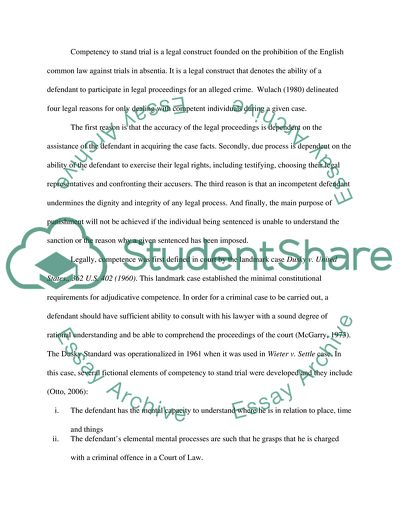Cite this document
(“Competency to stand trial Research Paper Example | Topics and Well Written Essays - 2250 words”, n.d.)
Competency to stand trial Research Paper Example | Topics and Well Written Essays - 2250 words. Retrieved from https://studentshare.org/psychology/1633015-competency-to-stand-trial
Competency to stand trial Research Paper Example | Topics and Well Written Essays - 2250 words. Retrieved from https://studentshare.org/psychology/1633015-competency-to-stand-trial
(Competency to Stand Trial Research Paper Example | Topics and Well Written Essays - 2250 Words)
Competency to Stand Trial Research Paper Example | Topics and Well Written Essays - 2250 Words. https://studentshare.org/psychology/1633015-competency-to-stand-trial.
Competency to Stand Trial Research Paper Example | Topics and Well Written Essays - 2250 Words. https://studentshare.org/psychology/1633015-competency-to-stand-trial.
“Competency to Stand Trial Research Paper Example | Topics and Well Written Essays - 2250 Words”, n.d. https://studentshare.org/psychology/1633015-competency-to-stand-trial.


